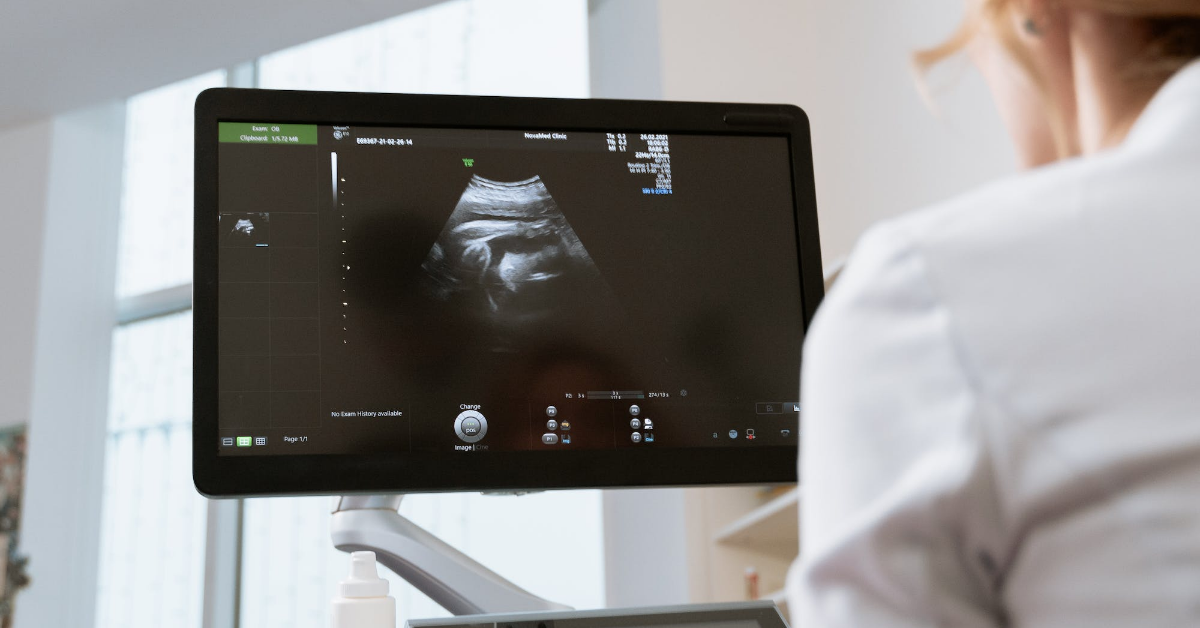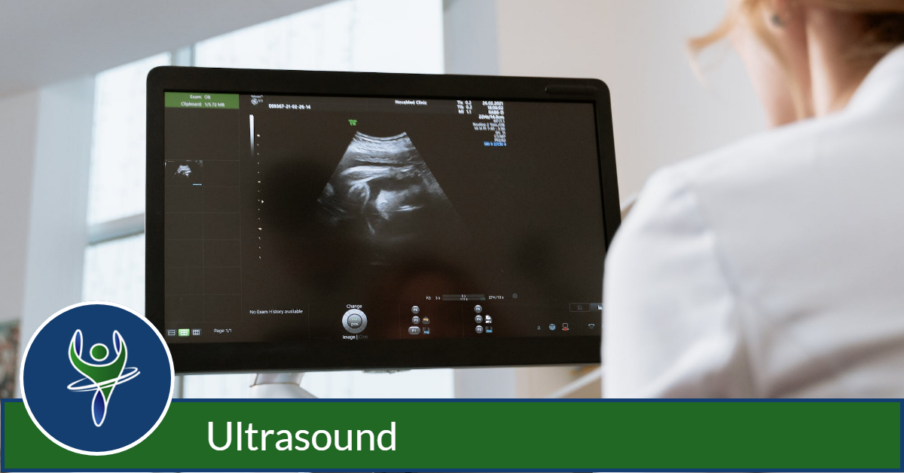Ultrasound technology consists of a console containing a computer and electronics, a video display screen and a transducer that is used to do the scan. The transducer is a small hand-held device that resembles a microphone, attached to the scanner by a cord.
The transducer sends out inaudible high frequency sound waves into the body and then listens for the returning echoes from the tissues in the body. The principles are similar to sonar used by boats and submarines.
The scan's image is immediately visible on a video display screen that looks like a computer or television monitor. The image is created based on the amplitude (loudness), frequency (pitch) and time it takes for the signal to return from the area of the patient being examined to the transducer (the device used to examine the patient), as well as the type of body structure and composition of body tissue through which the sound travels.
A small amount of gel is applied to the skin to allow the sound waves to travel back and forth from the transducer.
When would I get a Ultrasound?
Ultrasound is considered to be useful in examining many different areas of the body. Your doctor may consider a scan to be appropriate to evaluate symptoms such as:
- pain
- swelling
- infection
Ultrasound is also used to:
- guide procedures such as needle biopsies, in which needles are used to sample cells from an abnormal area for laboratory testing
- image the breasts and guide biopsy of possible breast cancer
- diagnose a variety of heart conditions, including valve problems and congestive heart failure, and to assess damage after a heart attack. Ultrasound of the heart is commonly called an “echocardiogram” or “echo” for short
To learn more about ultrasound, view this two-minute presentation.
What Will I Experience?
Ultrasound is noninvasive and usually painless. However, you may experience mild discomfort as the sonographer guides the transducer over your body, especially if you're required to have a full bladder, or inserts it into your body.
The length of time for an ultrasound exam will vary. Typically, most scans will last 30 to 60 minutes.




